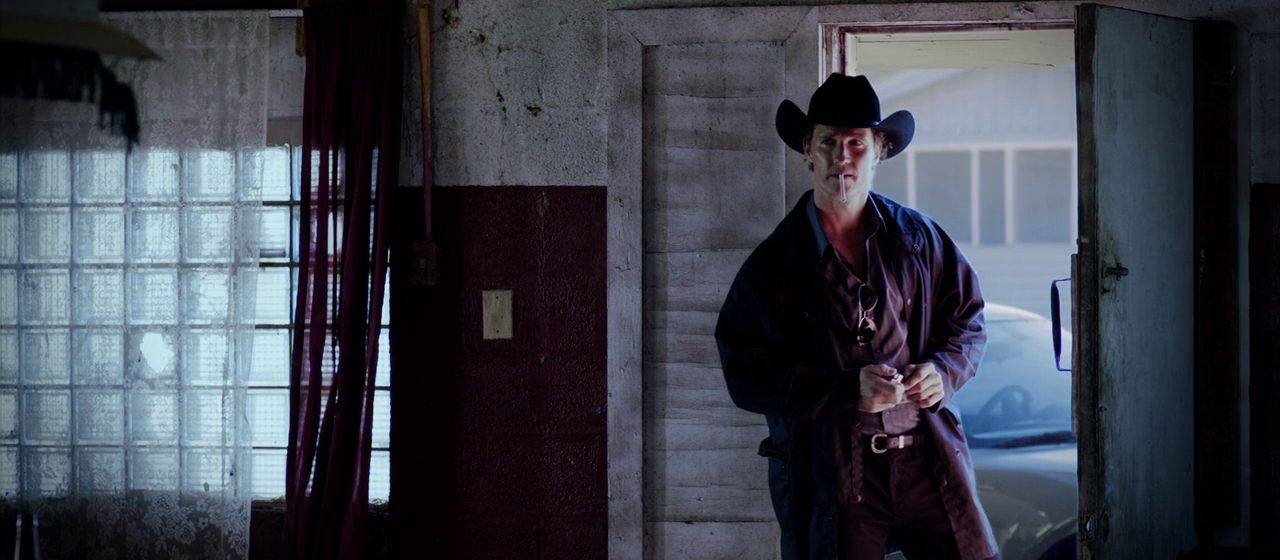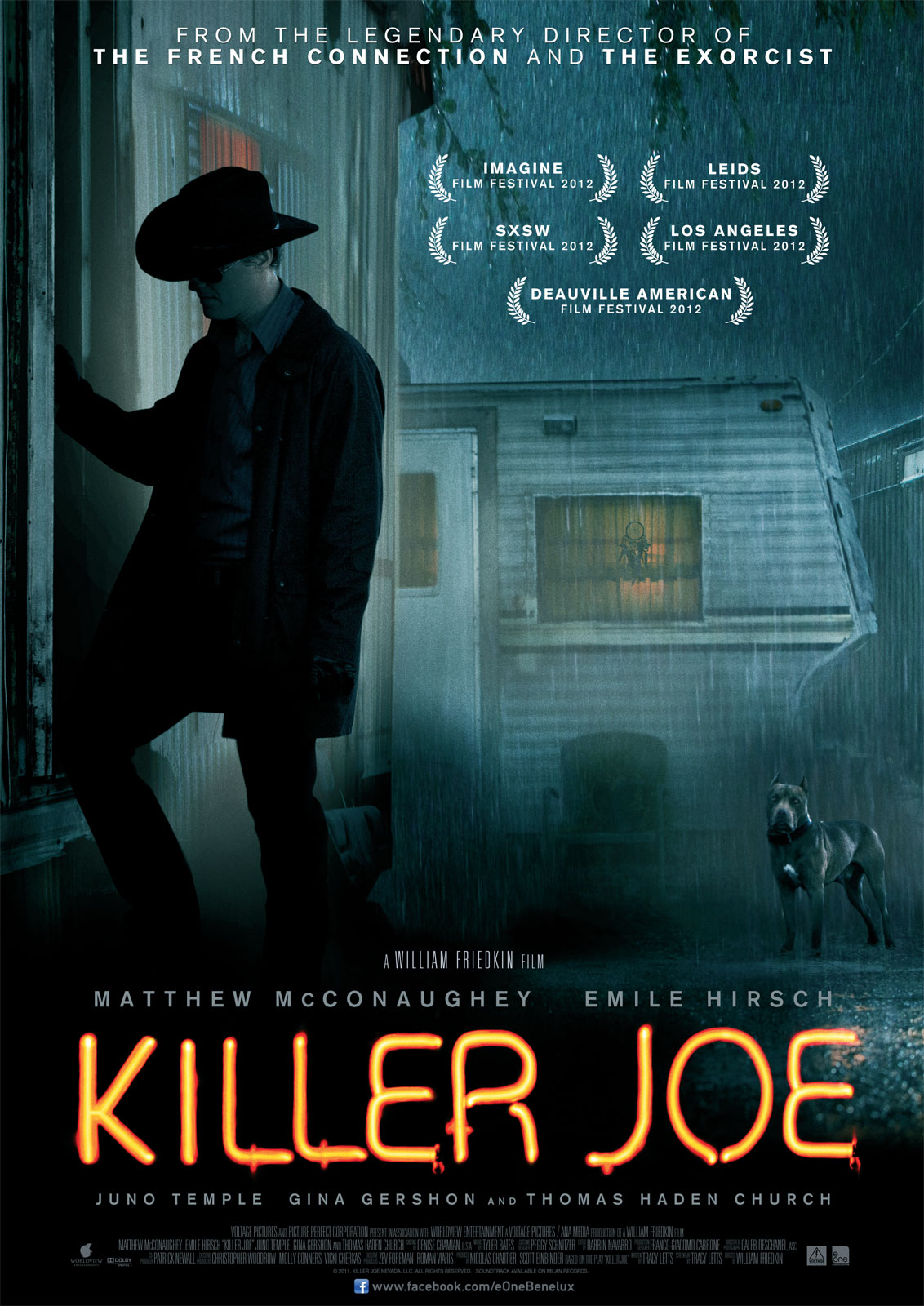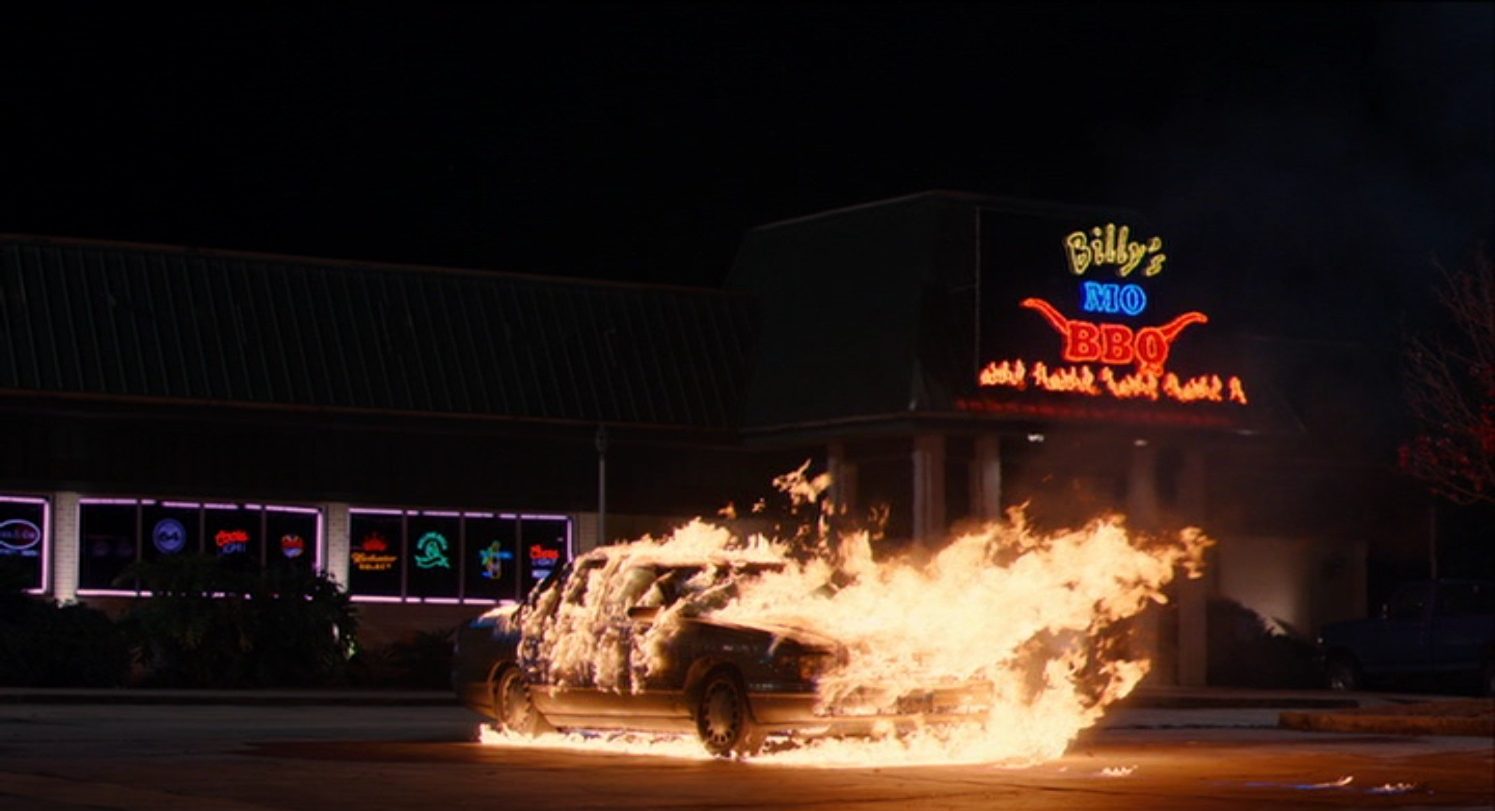

“I mean, all she did was suck his cock and try and steal your money. It could have been worse.”
“How?”
“Well… nah, I suppose that’s about as bad as it gets.”
If you want to feel terrible for enjoying a film, look no further than William Friedkin’s Killer Joe, the legendary director’s penultimate narrative feature. Reteaming with Bug playwright and screenwriter Tracy Letts, Friedkin cooks up a deep-fried trailer trash crime thriller that sees a family of greedy halfwits rip themselves to shreds by welcoming a hideous evil into their midst. Equally slovenly, appalling, erotic, and hilarious, the smartly paced film gradually builds upon its wicked premise, rich characterizations, and squalid setting, climaxing with a go-for-broke third act that might just top the nightmare apotheosis of Bug. There’s a grim satisfaction that comes from watching foolhardy morons sow the seeds of their own destruction, and no small amount of pitch black humor, but about the time Matthew McConaughey begins using fast food to sexually abuse a woman whose face he has recently pulpified, it starts to feel a little bit too nasty.
The world of Killer Joe is primarily built on the back of its redneck stereotypes. On the grimy outskirts of Dallas, the Smith family lives in a fetid double-wide where they watch monster truck demo derbies, drink cheap beer, have a pitbull permanently chained up outside, only eat “K fried C” on special occasions, &c. One night, as it pours rain, Chris (Emile Hirsch) bangs on the trailer door and his stepmother Sharla (Gina Gershon) answers it without a shred of clothing on her bottom half, with her “beaver puckered out like it was trying to shake Chris’s hand.” This is the Smith family in a nutshell.
It is secondarily built upon a milieu of casual violence, typified by a repetition of the above scenario, in which Sharla answers the door with her face splattered in half-dried blood, her nose swollen and dripping. Chris enters the trailer without any indication that his stepmother’s condition has registered at all. Of course, at that point his own face is mottled with purple bruises.
The setup finds Chris in a tight spot: he’s out $6000 because his biological mother stole the cocaine he was going to sell, and now he can’t pay off his connection (Marc Macaulay), who has no qualms about roughing him up or killing him if he can’t scrounge up the dough. Justifiably fearing for his life, Chris hatches a hairbrained plan, which he relays to his father, Ansel (Thomas Haden Church), in the privacy of a grungy bar. He intends to hire a hitman to kill his mother, whose life insurance policy lists Dottie (Juno Temple), Chris’s sister, as the sole beneficiary.

The four Smiths agree to split the money evenly after paying off the contract, and shortly make contact with Killer Joe (McConaughey), a police detective whose real stock and trade is a side gig discretely murking people for large sums of cash. The only problem is that Joe wants his $25k up front. Unable to meet the terms—they need the insurance payout first—Ansel and Chris offer up Dottie’s virginity as a retainer, with full knowledge of Joe’s intentions and without consulting Dottie. To be sure, these are desperate, selfish, inept people. And Joe, the only character with any brains (aside from Dottie, whose mentality has been entirely formed by her brainless family members) treats them this way as the sordid plot is followed through to its bloody conclusion.
What makes Killer Joe brilliant in its own demented way is how smoothly it misleads the audience by establishing Joe as a smooth operator—a charismatic, imposing figure who, when set against the Smiths, easily charms the audience with his strict credo and air of professionalism—only to have his own depravity outpace his clients’ degeneracy. In a film that hinges around a family willing to kill their mother for money, the hardest scene to watch is when Joe effortlessly seduces Dottie as they share a candlelight dinner together in the Smiths’ trailer.
Of course, there are several contenders for that title, including the aforementioned-but-loosely-described sequence involving a drumstick. This is a resolutely scummy picture that wallows in human wickedness and perversion, so much so that it takes a while for its bleak sense of humor to become apparent. Once it does, Killer Joe becomes a twisted treat—certainly not a crowd pleaser, but a memorable experience for all; and for those of a certain temperament, an enjoyable slice of backwater macabre.